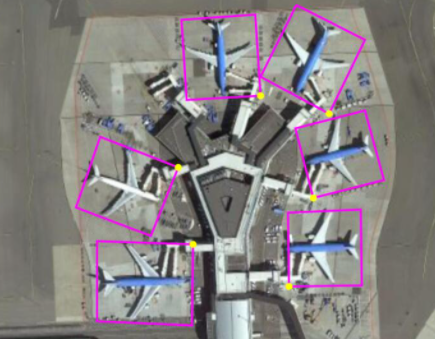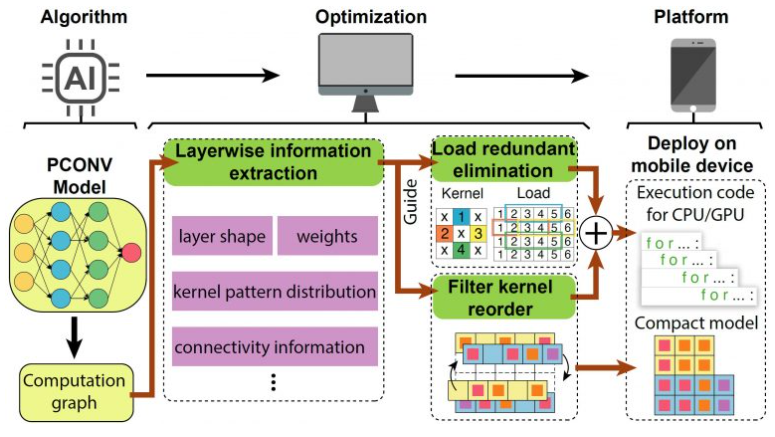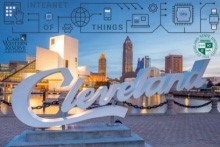Data Science and Artificial Intelligence Research
Cleveland State University (CSU) offers a  proven record of expertise in data science and artificial intelligence in partnership with CSU T.E.C.H. Hub, Center for Cybersecurity and Privacy Protection, and Center for Applied Data Analysis and Modeling. CSU researchers partner and collaborate with government and private industry to develop and deliver innovative engineering solutions in statistical methods for big data, secure machine learning systems, deep neural networks, machine learning and artificial intelligence (MLAI)-based communication solutions, and image and video data analysis.
proven record of expertise in data science and artificial intelligence in partnership with CSU T.E.C.H. Hub, Center for Cybersecurity and Privacy Protection, and Center for Applied Data Analysis and Modeling. CSU researchers partner and collaborate with government and private industry to develop and deliver innovative engineering solutions in statistical methods for big data, secure machine learning systems, deep neural networks, machine learning and artificial intelligence (MLAI)-based communication solutions, and image and video data analysis.
RESEARCH CAPABILITIES
We create, design and develop innovative data science and AI methods and systems:
- Biomedical data in a graphical form to analyze heart failure patient data using unsupervised machine learning
- Ranking disease genes for medical discovery, drug development, and process control
- Secure machine learning systems for multimodal data analysis in cybersecurity, healthcare, and disaster resilience applications
- Integration of classic communications with MLAI solutions for underwater communications and joint sensing and communications
- Data-driven wireless networking for low SNR communication and On-the-Fly Training for adapting to different environment
- Compressed deep neural networks to achieve faster inference speed

- AI-based satellite image analysis for remote sensing
- Video data analysis and machine learning for material science
CURRENT PATRNERS AND SUPPORTERS
- Partners:
- CSU Faculty: Drs. Zicheng Chi (ECE), Sunnie Chung (ECE), Yongjian Fu (ECE), Sathish Kumar (ECE), Qin Lin (ECE), Mehdi Rahmati (ECE), Hongkai Yu (ECE), Tianyun Zhang (ECE), Richard Fan (MATH), Shawn Ryan (MATH), Yuping Wu (MATH)
- CSU Research Laboratories:
- Sponsors & Supporters: US National Science Foundation (NSF), NASA Glenn Research Center, National Academy of Sciences, Air Force Research Lab, Ohio Department of Higher Education, Cleveland Clinic, and GE Lighting.
NEWS AND AWARDS
- US National Science Foundation supports several projects
- Transdisciplinary Cybersecurity Education for Law and Engineering Students (Yu, Kumar)
- Algorithm design on weight pruning and weight quantization to compress the model size of deep neural networks (TZhang)
- Algorithm-hardware co-design on improving the implementation efficiency of deep neural networks on hardware platform. (TZhang)
- Ultra low power passive IoT systems and spectrum sharing with active, semi passive devices (Chi)
- Bringing Ambient Backscatter to Real World by Data-Driven Modeling. Using ML model to help ultra low-power, low SNR wireless communication. (Chi)
- The Cleveland Tech Talent Pipeline (CLE TTP) (CYu)
- NASA Glenn Research Center - Applied anomaly detection in NASA test Facility, Data System (Fan)
- National Academy of Sciences - Traffic intersection detection and evaluation in satellite images. (HYu)
- Air Force Research Lab,
- Detect, track and classify the large-scale objects in the microscopic image sequence of 3D material samples to analyze the material properties. (HYu)
- Securing Lightweight Blockchain-based Internet of Things using Machine Learning Techniques (Kumar)
- Ohio Department of Higher Education - Robot arm control with machine vision: Controlling Functional Reaching with Eye and Head Movements of People with High Cervical Spinal Cord Injuries. (HYu)
- Ohio Cyber Range Institute - Ohio Cyber Range Regional Programming Center Application (CYu)
- Cleveland Clinic - Construct networks from biomedical data (Wu)
- GE Lighting - Privacy-Preserving Federated Learning for Smart Home (Kumar)
- New America - Smart Cities Privacy & Equity Community Awareness & Empowerment, PIT-UN (Public Interest Technology University Network) Challenge Grant (CYu)
- Center for Disease Control (through Cuyahoga County Board of Health)
- Establishing Linkage to Care (Kumar)
- Cuyahoga County Overdose Data to Action Initiative (Kumar)
CURRICULUM AND COURSES
Students enrolled in the PhD, MCS and MSSE degree program (Masters of Computer Science and Masters of Science in Software Engineering) are offered the following advanced courses (600-level or above) that are relevant to this group's research. It is strongly recommended to take thesis option for MCS/MSSE students, which requires research under the guidance of a faculty member, culminating in the writing of a thesis.
| CIS 530 Database Systems & Processing | CIS 592 Special Topics, Machine Learning |
| CIS 600 Advanced Computer Architecture | CIS 606 Analysis of Algorithms |
| CIS 611 Enterprise DB Sys & Warehouse | CIS 612 Big Data & Parallel Database Systems |
| CIS 620 Advanced Operating Systems | CIS 632 Mobile Computing |
| CIS 634 Software Engineering | CIS 635 Software Engineering Metric/Economy/Management |
| CIS 636 Software Quality Assurance | CIS 660 Data Mining |
| CIS 666 Artificial Intelligence | CIS 675 Information Security |
| CIS 693 Special Topics, Deep Learning | CIS 693 Special Topics, Quantum Computing |
| CIS 694 Computer Network II | CIS 694 Android Sensor Programming |
| EEC 684 Parallel Processing | EEC 693 Special Topics, Computer Vision |
| STA 500: Data Visualization | STA 521: Time Series Analysis |
| STA 524: Probability and Math Statistics | STA 531: Categorical Data Analysis |
| STA 536: Design and Analysis of Experiments | STA 567: Applied Regression Models |
| STA 675: Applied Multivariate Statistics | STA 685: Advanced Data Models |
PhD in Engineering, Applied Computer and Data Science (ACDS) Specialization, is jointly offered by Cleveland Clinic and CSU. Other Data Science & Artificial Intelligence Programs at CSU include Machine Learning Artificial Intelligence Certificate (in preparation); MS in Statistics and Analytics (in process); Cybersecurity and Privacy Protection Certificate (Law); MS in Cybersecurity and Privacy Protection (Law); Cybersecurity Technology Certificate.
| For group information contact | For program information contact |
|---|---|
| Prof. Chansu Yu | Department of Electrical Engineering and Computer Science |
| Fenn Hall, Room FH 332 | |
| Phone: 216-687-2591 | |
| Email: ECE@csuohio.edu | |
| Website: http://www.csuohio.edu/ECE/ |